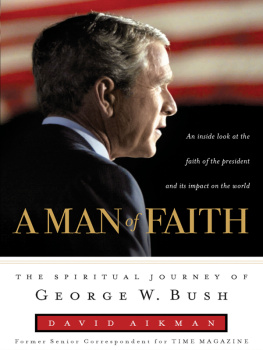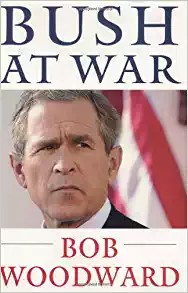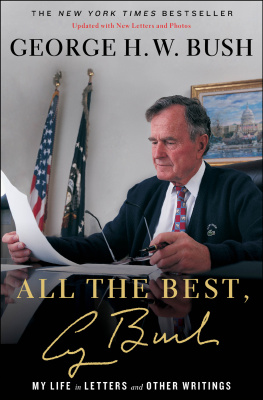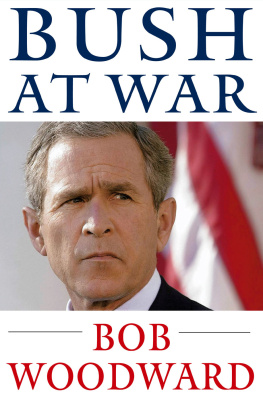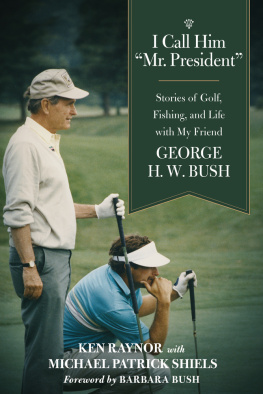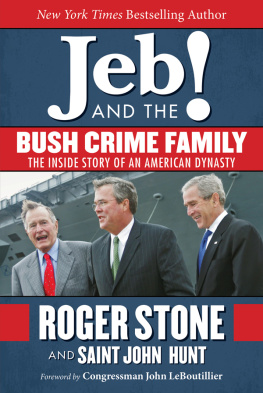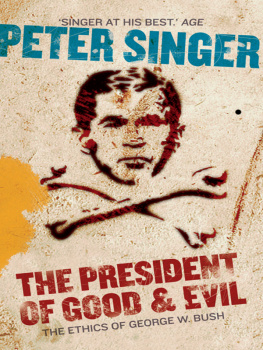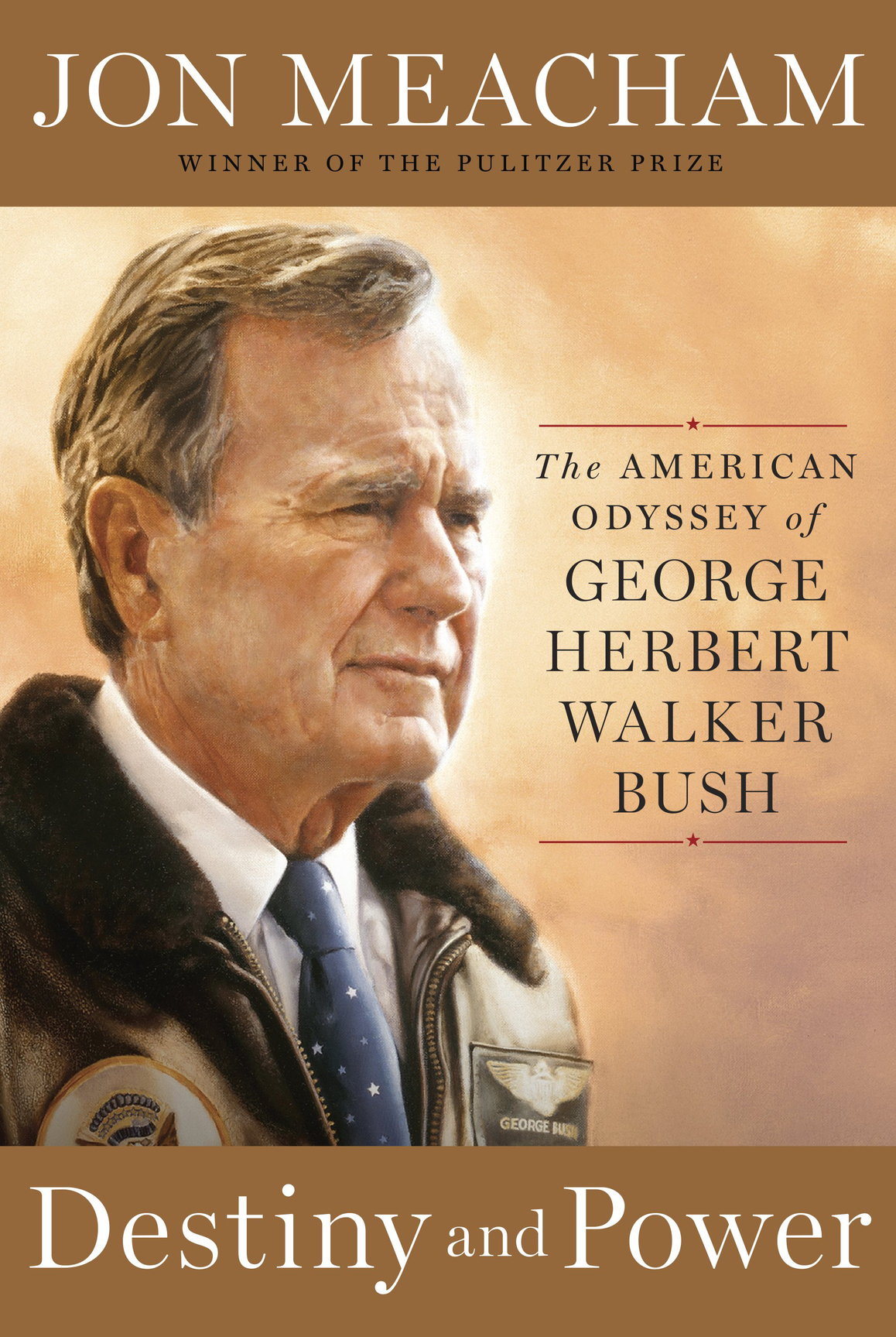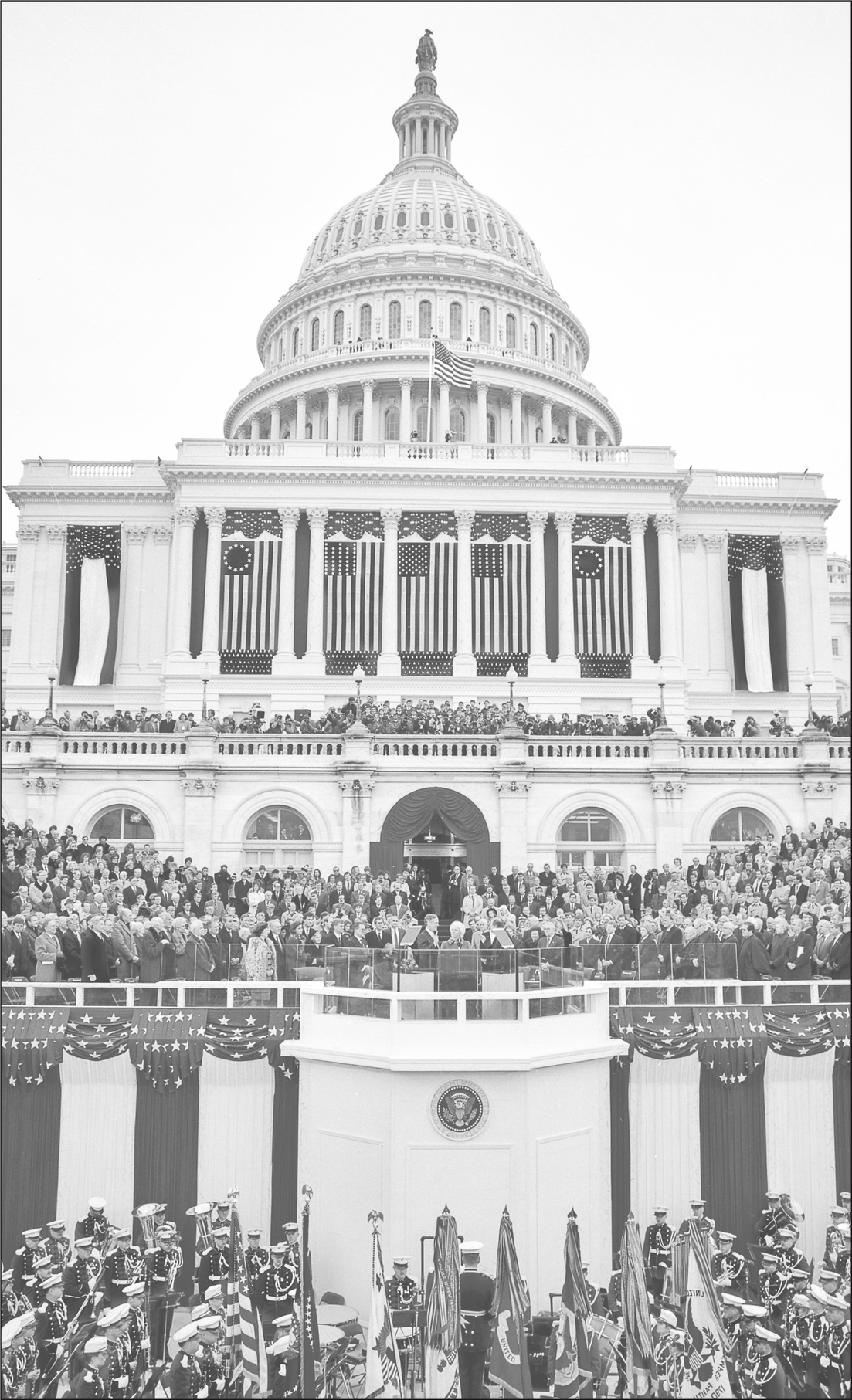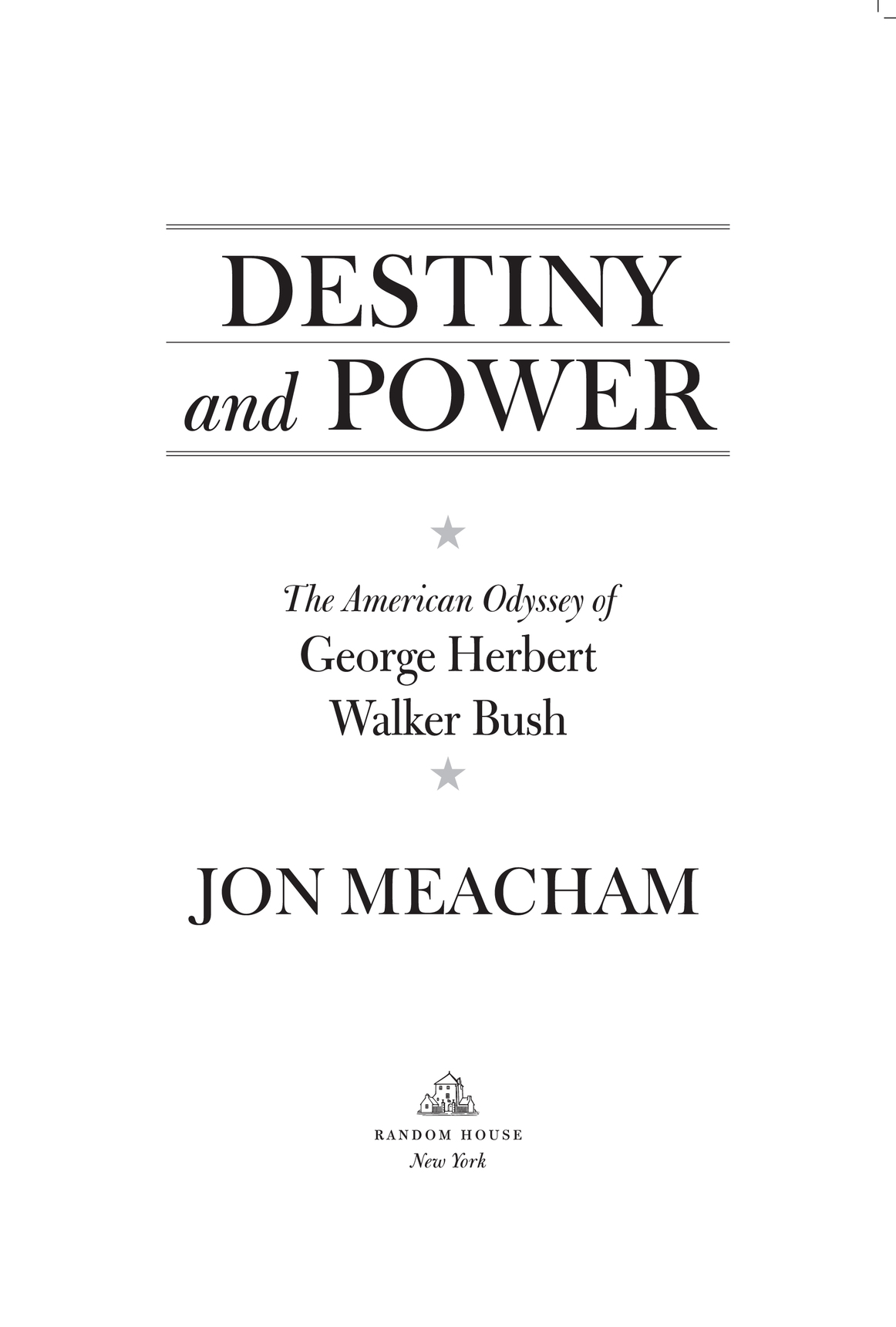All rights reserved.
Published in the United States by Random House, an imprint and division of Penguin Random House LLC, New York.
R ANDOM H OUSE and the H OUSE colophon are registered trademarks of Penguin Random House LLC.
Text permission credits are located on .
Illustration credits are located on .
TITLE PAGE : Chief Justice William H. Rehnquist swears in George Herbert Walker Bush as the nations forty-first president, the West Front of the U.S. Capitol, Friday, January 20, 1989.
Destiny is not a matter of chance; it is a matter of choice. It is not a thing to be waited for; it is a thing to be achieved.
Moods come and go, but greatness endures.
G EORGE H. W. B USH
PROLOGUE
The Last Gentleman
H OUSTON , T EXAS , 12:15 A.M. CST, N OVEMBER 4, 1992
E VEN IN THE DARK , he tried to look ahead. It was late, and he knew he should sleep, but he just couldntnot yet, anyway. Too much had happened; too much was on his mind.
In the Houstonian Hotels suite 271 on the evening he lost his bid for a second term as president of the United States, George Herbert Walker Bush climbed out of bed and slipped into an adjoining wood-paneled living room. Weary but restless, he settled on a small sofa. The room was empty, his heart full. There he sat, alone, struggling to make peace with the news that he, an American president who embodied the experience of the World War II generation, had just been defeated by Bill Clinton, the Baby Boomer Democratic governor of Arkansas. In his private, tape-recorded diary, Bush dictated: I ache and I now must think: how do you keep your chin up, keep your head up through a couple of difficult days ahead? He kept his voice low: Barbara, his devoted wife of forty-seven years, was asleep back in the bedroom. I think of our country, and the people that are hurting, and there is so much we didnt do Bush told his diary. And yes, progress that we made, but no, the job is not finished, and that kills me.
Not so long before, it had all been different: George Bush had always finished the job. From his earliest days, he had done what his parents, his teachers, and his country had asked of him. He had not only met expectations but exceeded them, time and again. Born in 1924, he was a son of privilege raised in Greenwich, Connecticut, and at the seaside Walkers Point in Kennebunkport, Maine. He had joined the navy on his eighteenth birthday. As a carrier-based bomber pilot in the Pacific in World War II, he had been shot down at the age of twentybut had finished his mission, attacking an enemy radio tower on Chichi-Jima even after his plane had been hit. He had raised a family, lost a daughter to leukemia, built a business, and thrived in the treacherous world of American politics. As president of the United States he had ended the Cold War with the Soviet Union, lifting the specter of nuclear war from the life of the nation and of the world, and led a global coalition to military victory in the Middle East. The American economy, however, had slipped into recession on his watch, leading to a persistent public sense that he was a rich man out of touch with the concerns of the people in his care. The caricature wasnt particularly fair, but, as Bush often said, politics never was.
On this election night, he had said the gracious things, calling the president-elect in Little Rock to concede the race and promise a smooth transition. Yet the loss hurt, hurt, hurt, Bush dictated, and I guess its the pride, too. It was surely the pride, toonot a doubt in the world about that. I dont like to see the pollsters right at the end, he dictated. I dont like to see the pundits right; I dont like to see all of those who have written me off right. I was absolutely convinced we would prove them wrong, but I was wrong and they were right, and that hurts a lot.
He had lost to an opponent he privately considered a draft dodger. Such was this decorated World War II veterans view of the younger mannow the president-electwho had managed to stay out of the armed forces during the Vietnam War and had participated in an antiwar demonstration in England as a Rhodes Scholar. I guess its losing to Bill Clinton, the person, Bush dictated. I like him, buthow do you be the commander in chief when you duplicitously avoid service to your country? Maybe it is time for a new generation. Hes George [W.]s age, a generation more in touch, a background more in touch.I know what the charge is, but Ive never felt out of touch, but then Ive always assumed there was duty, honor, country. Ive always assumed that was just part of what Americans are made ofquite clearly its not. Two days later, in another diary entry, the defeated president said: I still feel that there is a disconnecthonor, duty, and countryits just pass. The values are different now, the lifestyles, the accepted vulgarity, the manners, the view of whats patriotic and whats not, the concept of service. All these are in the hands of a new generation now, and I feel I have the comfort of knowing that I have upheld these values and I live and stand by them. I have the discomfort of knowing that they might be a little out of date.
Honor, duty, country. Those verities, together with a driving ambition and an abiding competitive spirit, had shaped his life and his understanding of the nation. There was nothing affected about Bushs vision of politics as a means to public service, and of public service as the highest of callings. This vision of himself engaged in what Oliver Wendell Holmes, Jr., called the passion and action of the time was as real to him as the air he breathed.
Early on election night his sons George W. and Jeb had tried to cheer him up. The boys [are] telling me, Were proud of you, Dad, were very proud of you, Bush dictated. Yes, their father was President and all of that, but a failed President. In his anguish he was being too hard on himself. He had lost an election, not his place in history.


